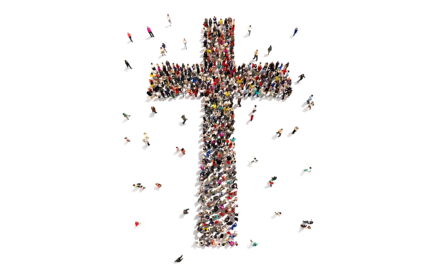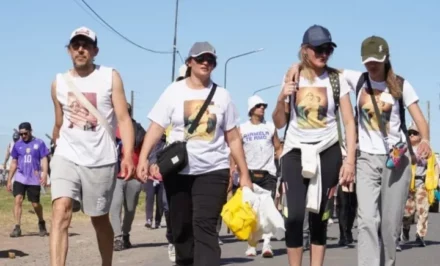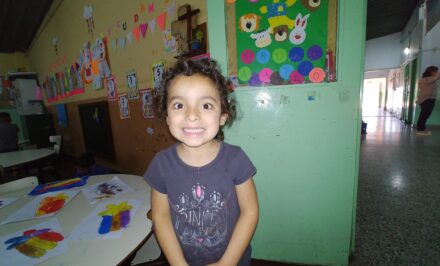 org. From now on we will publish statements of Pope Frances as our “door to the week” for each step on our way in the everyday life of our pilgrimage. They are statements from the previous week, statements that will inspire us to become increasingly missionary pilgrims, who live in solidarity, who are poor, joyful, open and simple pilgrims who pray for renewal – in and with the Church – renewal in the genuine spirit of the covenant. Without humility there is neither effective service nor inner and genuine renewal. Actually it is very simple, because Francis speaks about the Grace of 2014.
org. From now on we will publish statements of Pope Frances as our “door to the week” for each step on our way in the everyday life of our pilgrimage. They are statements from the previous week, statements that will inspire us to become increasingly missionary pilgrims, who live in solidarity, who are poor, joyful, open and simple pilgrims who pray for renewal – in and with the Church – renewal in the genuine spirit of the covenant. Without humility there is neither effective service nor inner and genuine renewal. Actually it is very simple, because Francis speaks about the Grace of 2014.
![]()
WEEK 23, 2013
What generates the multiplication of the loaves? The answer lies in Jesus’ invitation to the disciples “You give… “, “give “, share. What do the disciples share? What little they have: five loaves and two fishes. But it is precisely those loaves and fishes in the hands of the Lord that feed the whole crowd. And it is precisely these disciples, distressed when faced with the inability of their means, the poverty of what they can offer, who get the people to sit down and who distribute – trusting Jesus’ word – the loaves and fishes that feed the crowd. And this tells us that in the Church, but also in society, one keyword that we must not fear is ‘solidarity’, i.e. to put at God’s disposal what we have, our humble capacities, because only in sharing, in the gift, will our lives be fruitful, will they bear fruit. Solidarity: a word frowned upon by the worldly spirit!
Sermon at Corpus Christ, 30 May
Tonight, once again, the Lord distributes for us the bread which is his Body, he makes himself gift. And we, too, experience the “solidarity of God” with man, a solidarity that never runs out, a solidarity that never ceases to amaze us: God is near us, in the sacrifice of the cross he stoops to enter into the darkness of death to give us his life, defeating evil, selfishness and death. Jesus also this evening gives himself to us in the Eucharist, he shares our same journey, indeed, he makes himself food, the real food that sustains our lives even in times when the road becomes tough, the obstacles slow our steps. And in the Eucharist, the Lord makes us travel his path, that of service, of sharing, of gift, and what little we have, what little we are, if shared, becomes wealth, because the power of God, which is that of love, descends into our poverty to transform it.
Sermon at Corpus Christ, 30 May
Triumphalism brings the Church and Christians to a halt. A triumphalist Church is a half-way Church that is happy, well-organised and efficient, but denies martyrdom and does not know that martyrs are necessary for the way of the Cross. It is the temptation of Christianity without the Cross, a half-way Church without Jesus. The Pope said that a Church that thinks only of triumphs and successes, does not follow the rules of Christ, which is about triumphing through failure, human failure, the failure of the Cross. This, he said, is something which we all have.
Sermon in Santa Marta, 29 May
Let us ask ourselves then this evening, worshiping Christ really present in the Eucharist: do I let myself be transformed by Him? Do I let the Lord who gives himself to me, guide me to come out more and more from behind my little fence, to go out and not be afraid to give, to share, to love him and others?
Brothers and sisters: discipleship, communion, sharing. Let us pray that the participation in the Eucharist leads us to always follow the Lord every day, to be instruments of communion, to share what we are with him and with our neighbor. Then our lives will be truly fruitful. Amen.
Sermon at Corpus Christ, 30 May
Action. Mary set out “as quickly as she could” (cf LK1,39). Last Sunday I underlined this form of Mary’s actions: despite the difficulties and the criticism that her decision to set out could have entailed, she allowed nothing to stop her. She set out as quickly as she could, without delay. In prayer before the God who spoke to her, in reflecting and meditating on the events in her life, Mary was in no hurry; she did not allow herself to be captured by the moment or carried along by events. However, when it was clear what God asked of her, what she had to do, she did not wait, she didn’t drag her feet, but went “without delay”. St Ambrose said, “The grace of the Holy Spirit does not tolerate tardiness.” (Expos. Evang. sec. Lucam, II, 19: PL15, 1560). Mary’s action is a consequence of her obedience to the words of the angel, but connected with love for others: She went to Elizabeth in order to help her; and in setting off from her home, from herself, out of love, she brought the most precious treasure she had: Jesus. She brought her Son.
31 May 2013
Sometimes also we pause to listen, to think about what we should do; perhaps we also see clearly what decision we have to take, but we don’t translate this into action. We don’t involve ourselves by going “without delay” to the others, to help them, to offer our understanding, our love; or like Mary to bring with us the most precious thing we have received, Jesus and his Gospel, the Word and above all the concrete witness of our action.
Listen, decide, act.
Mary, Woman who listened, open our ears; help us to hear the words of your Son, Jesus, out of all the thousand words of this world; help us to listen to the reality in which we live and to every person we meet, in particular the poor, the needy, the people in difficulties.
Let us ask the Lord not to be a half-way Church, or a triumphalist Church, or a Church of great successes, but a humble Church that goes ahead decisively, like Jesus. Onward, onward, onward. With an open heart for the will of the Father, like Jeus. Let us pray for this grace.
Sermon in Santa Marta, 29 May
Translation: Radio Vatican Website, VISnews. Mary Cole, Manchester, England (private translation)
![]()
The aim of the pilgrimage
is the renewal of the covenant of love
as a missionary and unifying creative force,
i.e. internally the renewal of the Schoenstatt Family
and externally the shaping of covenant culture.













